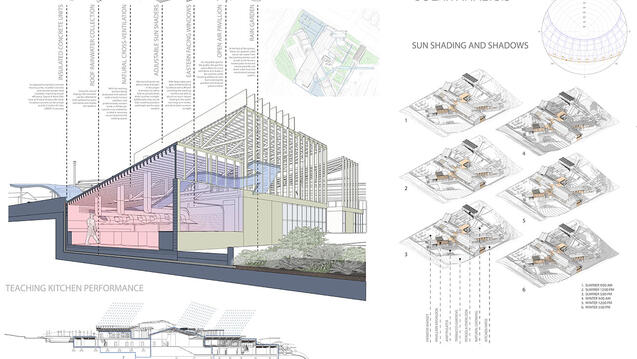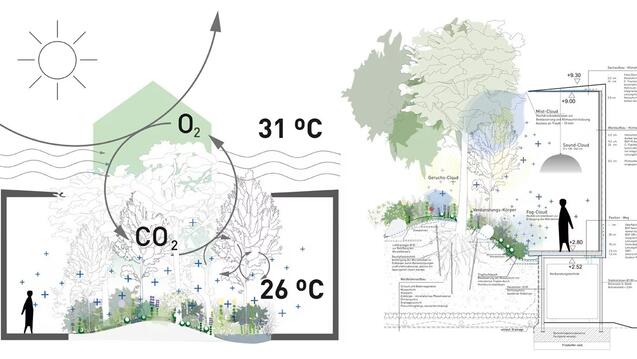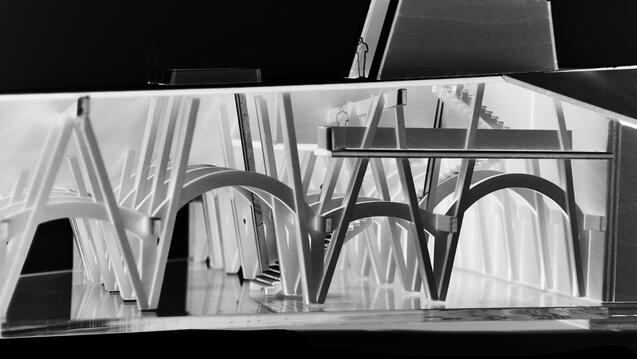The main objective of this course is to focus on how students learn, develop and make decisions as they transition into architecture education.

Fall 2025
Poiesis II Experiments by Jimmy Kweon, Ryan Wang, Paul Doyle, and Sylvia Kim
This foundational course introduces first-year Architecture students to the principles of Design Ethics through the lens of social justice, climate responsibility, and technological transformation.
This is an introductory course in free-hand architectural drawing. Its central learning objective is building a capacity for visualizing three-dimensional space through freehand drawing.
This course introduces fundamental concepts of building physics. The knowledge and skills obtained from this course can be applied to studio projects and beyond, improving building design and performance through standard methods of evaluation and simulation tools.
Fulfills minor requirements for: Architectural Technology (non-majors)
We may learn to develop architecture that enriches the context from which it arises by conceptually recognizing the built/natural environment as a complex web of interacting parts constantly exchanging energy and resources.
This course introduces architectural design responses for energy conservation and natural conditioning, human comfort, and the site-specific dynamics of climate. Students will be expected to combine an understanding of the basic laws of comfort and heat flow with the variables of local climate to create energy design guidelines for design work.
This course emphasizes the integration of active systems within commercial buildings, focusing on strategies for their successful combination with passive components.
The course is organized as a graduate seminar that concludes the cycle of required courses in the history and theory of architecture for the M.Arch program.
This course aims to provide graduate students with a general introduction to different modes of conducting architectural research, while creating opportunities for cohort building, social exchange and skills development.
This seminar is designed to prepare students planning to work on a thesis project in the B.Arch and M.Arch programs.
Praxis I unpacks architecture’s entanglements with extraction and capital to explore emergent models for transformative socio-ecological praxis using Just Transitions/Transition Design as a prompt and theoretical underpinning. It considers architecture as a broad framework for Worldmaking across political, social, and ecological contexts to locate “praxis” in the context of architectural agency and design ethics.
This graduate seminar explores important writings and ideas being discussed in architecture today in relation to “Design Ethics,” one of the central pedagogies of the school and the M.Arch program.










